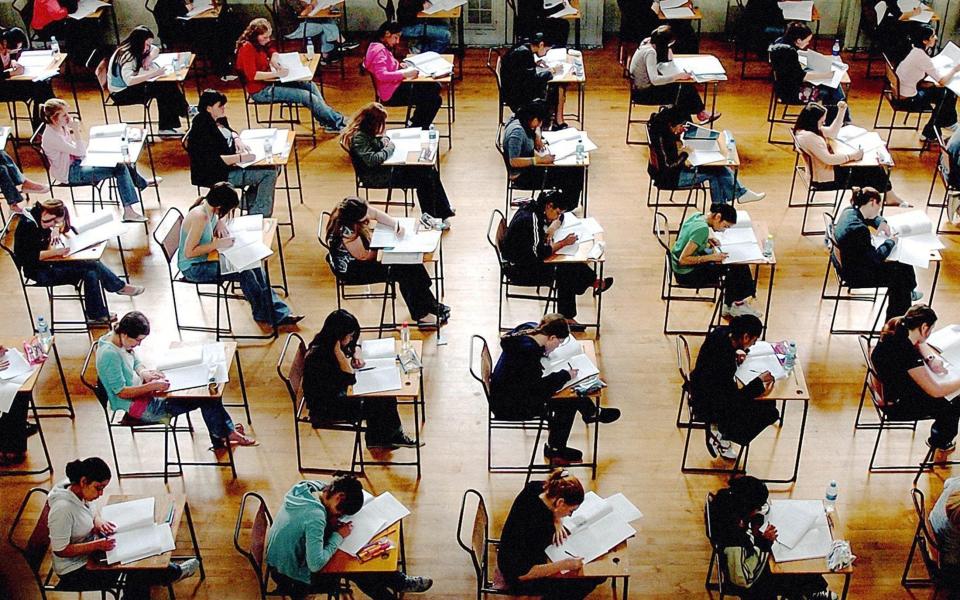Exam regulator urged to avoid a 'prizes for all' approach for 2021 A-levels and GCSEs

The exam regulator has been urged to avoid a “prizes for all” approach for the second year running as it draws up plans for A-levels and GCSEs.
The Office of Qualifications and Examinations Regulation (Ofqual) has been warned that if it allows the same proportion of pupils to win top grades this year as it did in 2020, it risks “baking in” grade inflation.
The watchdog is drawing up a grading system for next summer’s exams which involves deciding where grade boundaries will be set.
“The one thing we would want to avoid if we possibly can is the ‘everyone must have prizes approach’ we had this summer,” a source said.
“It will cause a big row. For grades to be meaningful at all, you do something to unpick the big inflationary leap of 2020. However you can’t imagine the pupils and teachers of 2021 saying somehow they are less disadvantaged than the 2020 pupils.
"I could well imagine an argument that says ‘we too are a disadvantaged cohort and we can’t have anything less than what 2020 got’. But that would mean baking in the inflation.”
Gavin Williamson has insisted that exams in England will go ahead because they are the “fairest way of judging a student’s performance” but concedes that these will need to be “underpinned by contingency measures”.
Downing Street officials are keen to avoid a repeat of this summer’s chaos, which saw a controversial algorithm ditched in favour of teachers' predicted grades following a national outcry.
Ofqual already uses a statistical model called “comparable outcomes” to ensure that roughly the same proportion of pupils are awarded top grades each year.
For the 2021 exams, one option under consideration is to disregard the 2020 results – on the basis that they were far higher than a normal year after teachers’ predictions were used – and peg the grade proportions to 2019’s results instead.
Another option is to allow the same proportion of pupils to win top grades as they did last year, and a third option would be to find a point in between the two.
Teacher unions have said it would be “unconscionable” for this year’s exam results to be pegged to grades achieved in 2019, saying some grade inflation should again be allowed.
“Grade boundaries could be set using the usual comparable outcomes process as a starting point, and then altered by a number of marks to increase the percentage achieving that grade to an agreed level,” they told the schools minister. “That level could be somewhere between what was seen in 2019 and 2020.”
Leora Cruddas, chief executive of the Confederation of School Trusts which represents academies said Ofqual must examine all available evidence and come to a decision as a matter of urgency.
“The urgency needs to be balanced against finding the right solutions that will stand the test of time,” she said.
“What will be the worst possible thing is for an announcement to be made then changed early next year or after Easter – it is really important that we get this right.”

 Yahoo News
Yahoo News 